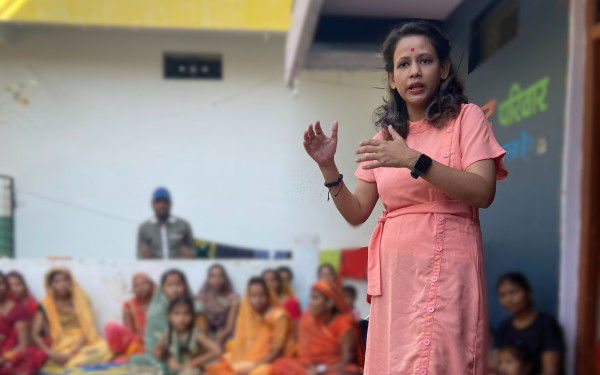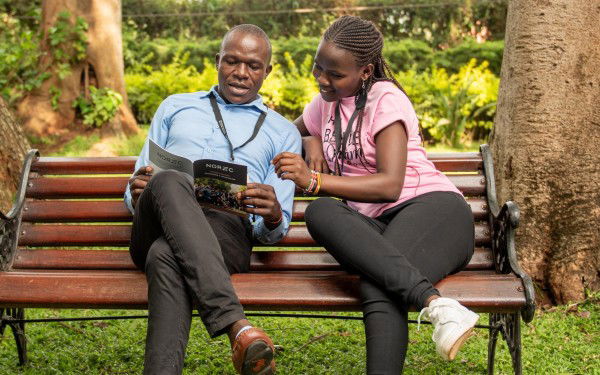Updated Collaboration Agreement application templates
25. April 2024
We have made some changes in requirements and information to be provided in the Collaboration Agreement application.
- Please note that these updated templates are only for applicants applying for a collaboration agreement.
- If you are submitting a round application, please use existing templates found here.
Changes to the overall project description
- View all the updated documents here
-
More emphasis on crosscutting issues
We will more closely assess how the project can affect in a negative way the cross-cutting issues of human rights, women’s rights and equality, climate change and the environment, and corruption and financial mismanagement. More guidance on how to make this assessment is provided in overall project description and guideline.
-
New questions related to visas and work permits for participants
It is the partner’s responsibility to ensure all legal documents (visas/work permits/passports/travel tickets/insurance) are obtained and all country-specific procedures are adhered to. This can include registration at local authorities, tax authorities or similar. The partners must make sure that the participants have all the necessary visas and permits, both for their stay in the host country and for their participation in Norec and partnership training courses. Norec recommends that the partners familiarise themselves with the procedures for visas and work/residence permits and start the process(es) as soon as possible.
-
Increased focus on Sexual exploitation, abuse and harassment
Norec has zero tolerance for inaction against sexual exploitation, abuse and harassment (SEAH) Norec requires that all partner organisations have robust professional policies on conduct, and anti-harassment, including on SEAH. The principle apply to all participants, staff members and partners organisations.
In the application, all partners must describe their routines and procedure for preventing, detecting and managing these types of incidents. In addition, partners are expected to assess the risks of SEAH and have appropriate mitigating measures. Norec expects partners to have a victim/survivor-centred approach to SEAH issues and do its utmost to prevent, detect and respond to SEAH within and related to the Project.
-
USD bank account is a requirement
Non-Norwegian coordinating partners/grant recipients should ideally have a USD bank account, unless there are specific rules preventing them from doing so. Norec requires all partners to take appropriate measures to minimize currency conversion losses, and to facilitate the transfer of funds between partners and the transfer of any remaining balance to be repaid to Norec. Norec will not cover foreign exchange losses.
Changes to the budget template
-
Increased maximum rates
The maximum rate on the budget lines for allowance, housing and partner meeting have increased- Please refer to the guideline for more information
-
Training organised by partners
The budget line for preparatory training organised by the partners has been removed and is no longer part of the standard budget. It is still possible to apply for funding to conduct preparatory training under additional funding if the partnership fullfill certain criteria and can document a need for additional training
-
Exchange coordination and support
The two budget lines on administrative support have been replaced by a one budget line at the end of the budget template. The total amount in this budget line for all the partners cannot exceed 20% of the total project costs (Total participant related cost + Total other project costs). The partnership can distribute the amount among the partners as they see fit and according to the level of responsibility the partners have in the project.
Changes to the Annexes to the application
-
Applicants and partners no longer need to submit a tax statement
In the self-declaration, all partners must declare that they fulfil all applicable legal obligations relating to the payment of taxes, VAT and similar charges. All partners must also submit an audited financial statement of their organisation. An auditors will make a note in the audited report is any taxes or similar obligations have not been paid.
-
Signatory rights
The application must be signed by a representative of the coordinating partner who has signatory rights in order for the application to be considered by Norec. Non-Norwegian partners where the person signing the application is the Director/Executive Director of the organisation and Norwegian partners do not have to submit documentation of signatory rights with the application. If we need more information or documentation we will ask for it.
-
Auditor's state authorisation
Link to the auditor’s state authorisation (If link is not available, include auditor’s certificate as an annex): You do not need to submit documentation that the audit firm which will audit the Norec funds are authorised. You must submit the link or documentation that the audit firm that has audited your organisational audited consolidated financial statement is authorised.
-
Authorisation to recieve funds from abroad
Documentation/authorisation from the government that your organisation can receive funds from abroad (if applicable): In some countries, organisations must have an authorisation from the government to receive funds from abroad. If applicable, relevant documentation must be submitted with the application.
Other changes
-
One reporting deadline for exchange projects
For new collaboration agreements, there will now be one reporting deadline for our exchange projects. All narrative and financial reports will be submitted 4 months after the round has ended.
-
No longer need to submit participant's contract for each round
Partners no longer need to submit the participants’ contract of employment for each round. The agreement between Norec and the coordinating partner regulates the content of the employment contract and Norec requirements with regards to participant management. Norec may request the contract of employment if necessary. However, we still need the partnership’s emergency plan.




